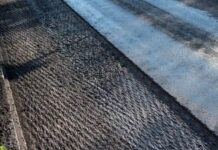If you wish to extend the life of your asphalt, then regular maintenance is paramount. Without proper maintenance, your asphalt is going to deteriorate faster than it has to, forcing you to pay for a replacement sooner than necessary. Crack Sealing is one of the most effective preservation tools.
 Crack Sealing is one of the most effective preservation tools you can use to extend the life of your asphalt. The fact is your asphalt is going to crack at one point or another. There is no way around it. While initially, when the crack forms, it may just be a real eyesore. However, if left untreated, it may lead to bigger and costlier maintenance problems down the line. Hence asphalt cracks need to undergo crack sealing as soon as possible to preserve the life of your asphalt. Here, in this article, we give you more information on crack sealing.
Crack Sealing is one of the most effective preservation tools you can use to extend the life of your asphalt. The fact is your asphalt is going to crack at one point or another. There is no way around it. While initially, when the crack forms, it may just be a real eyesore. However, if left untreated, it may lead to bigger and costlier maintenance problems down the line. Hence asphalt cracks need to undergo crack sealing as soon as possible to preserve the life of your asphalt. Here, in this article, we give you more information on crack sealing.
What IsCrack Sealing?
Crack Sealing, as the name suggests, is the use of specialized treatments (either cold or hot sealant) to seal off cracks in your asphalt preventing intrusion. These specialized treatments are poured into or above cracks in asphalt making them impenetrable for water and other non-compressible materials such as snow, dirt, or weeds from getting in and causing further deterioration.
Why Is Crack Sealing Important?
Water is one of asphalt’s greatest enemies when it is cracked. This is because water can then sip into the asphalt base and subgrade, eroding the material. Soon enough, with continued degradation, the cracks expand, more cracks appear, potholes, sinkholes, and fatigue cracking quickly follow. Pretty soon as the damages continue, the problem becomes big enough that you have to get your asphalt replaced.
However, Crack Sealing can help you mitigate all this. The materials used in crack sealant create a barrier that prevents water or any other damaging elements from getting into your asphalt, preserving it and extending its life by 3-5 years. Furthermore, the materials used to create the sealant are flexible and bond with the sides of your crack, meaning they will be able to move comfortably with your crack as the asphalt expands and contracts.
When Should You Do it?
Different seasons will have different effects on your crack. In cold temperatures, the asphalt contracts causing any cracks on it to open to their widest. The opposite happens in hot temperatures, as the asphalt expands and the cracks close up. Thus cool temperatures (45-65°F) such as in spring or fall provide the best temperatures to seal your crack. This is because any crack will be halfway between its widest and narrowest point. Thus when the sealant is poured in at this point, it will be subjected to minimum extension and contraction in the other seasons.
Moreover, crack sealing should only be done in dry conditions. Hence ensure you do it when no rain or snow is expected in the next two or three days.
When Is It Not The Ideal Option?
While crack sealing may seem like the answer to all your crack-related problems, it is not usually the ideal choice for every situation. If you have alligator cracks on your asphalt, then crack sealing may not be the option for you. This is because cracks like these are usually indicators of further structural damage, and crack sealing should only be done on structurally sound ground. Furthermore, alligator cracks are likely to have more settling occurring in the future causing the asphalt to break up even more.
Should I Hire A Contractor?
While crack sealing sounds simple enough to do by yourself, this is one of those situations where it is best to leave it to the professionals. They have the needed experience, materials, and equipment to do crack sealing properly.
Thus if you are looking for a crack sealing contractor that will have your asphalt looking as good as new, then Commonwealth is the place for you.
Opening Hours
| Monday | 9:00 AM – 5:00 PM |
| Tuesday | 9:00 AM – 5:00 PM |
| Wednesday | 9:00 AM – 5:00 PM |
| Thursday | 9:00 AM – 5:00 PM |
| Friday | 9:00 AM – 5:00 PM |
| Saturday | Closed |
| Sunday | Closed |
Address
Commonwealth Paving, 136 Outerloop, Louisville, Kentucky 40214
Phone: 502-459-7283, Fax: 502-456-2678







